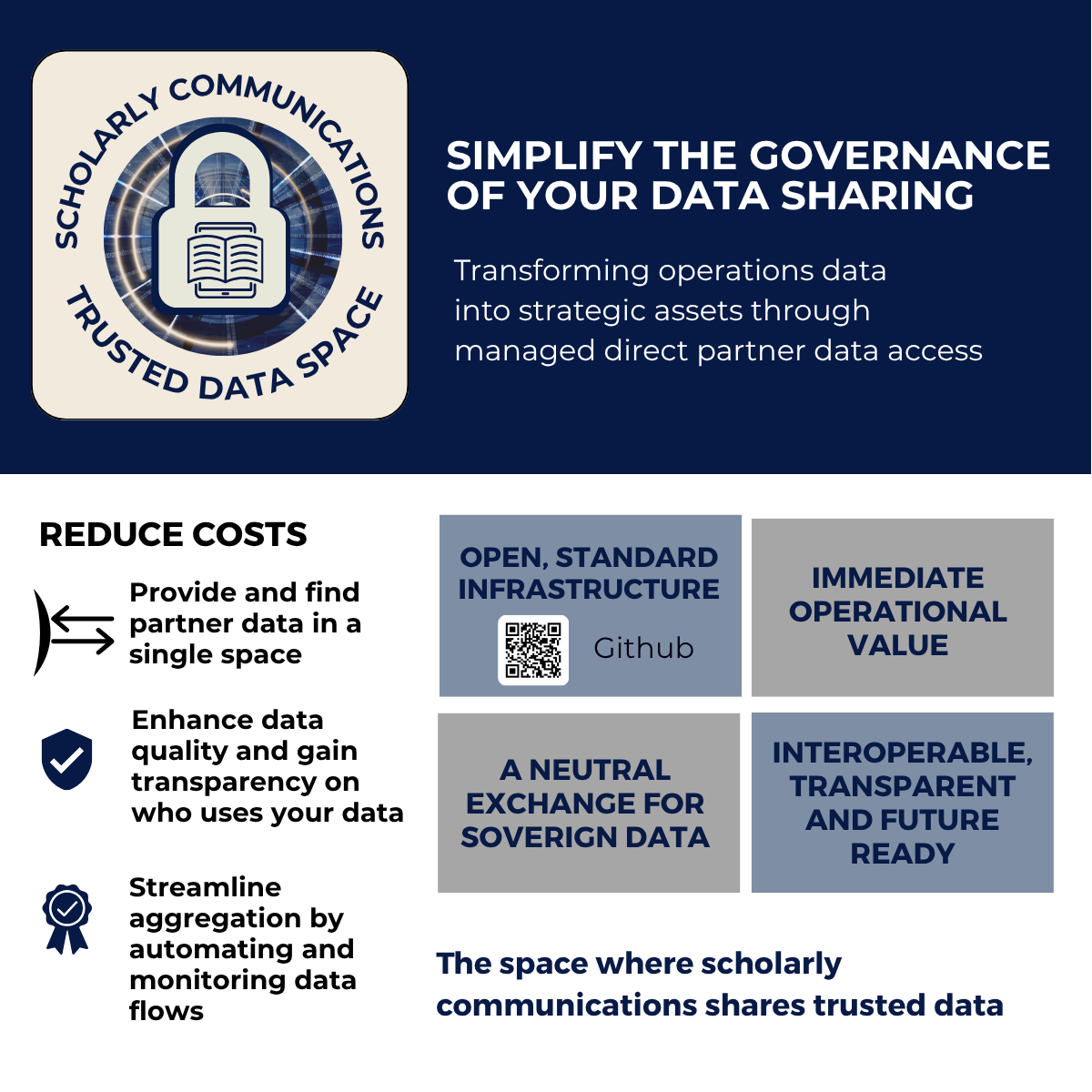The Scholarly Communications Trusted Dataspace
Building upon the successful 2025 of pilot our MVP dataspace infrastructure and community-led governance, stakeholders are preparing to launch a dataspace for real-time, controlled data intermediation across global scholarly communications organizations. This effort developed from the OA Book Usage Data Trust’s sustainability research, wherein stakeholders noted that a dataspace for scholarly communications must support sensitive data intermediation beyond simply usage data. In October 2025 Trustees approved the extension of the infrastructure and community-led effort to a broader mission and vision.
Mission: To improve scholarly communications management by exchanging interoperable data in a trusted, scalable, and community-governed way
Vision: Community governed exchange of interoperable, trusted scholarly communications data
Once funding is secured for two years of an operational reserve and the next round of technical development to take the MVP dataspace from Technical Readiness Level 7 to 9., organizations, companies and consortia will be able to join as participants to leverage the dataspace’s data sharing management and auditing enabling connectors. While the usage data connector service will launch to address challenges with distributed usage data reporting, participating organizations will be invited to engage in research and development, inform the user experience, and develop additional data connectors for use in scholarly communications’ supply chains. Organizations interested in supporting this transition can contact one of our Trustees or Executive Director.
Organizations participating in the dataspace will be charged annual participation rates based on expenditure tiers as determined by stakeholder consultations in 2024-2025. Ranging from 1,000€ to 15,000€ per organization, these funds will provide infrastructure and coordinating office cost-recovery for the dataspace. Discounts will be available for multi-year commitments and consortium joining together.
Our infrastructure builds upon the proven state-of-the-art open source dataspace developed in 2025 by Think-IT to be compliant with the Dataspace Protocol and ISO/IEC DIS 20151 using open source code, standards, and protocols managed by the Eclipse Foundation and International Data Spaces Association.
Dataspace coordinating office support will be hosted by OPERAS-EU. This support will facilitate community-led governance, communications and outreach, research and development, and accountability mechanisms.
To facilitate governance and dataspace administration transitions from the OA Book Usage Data Trust to the Scholarly Communications Trusted Dataspace, the OAEBUDT Board of Trustees and Board Committees will meet monthly between January and June 2026 via a “Committee of the Whole”. Please contact our Executive Director if you’d like to attend a session as we prepare to launch.
